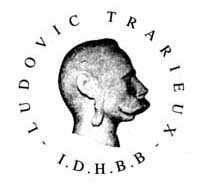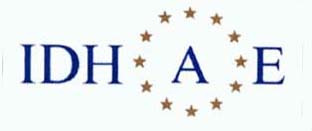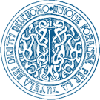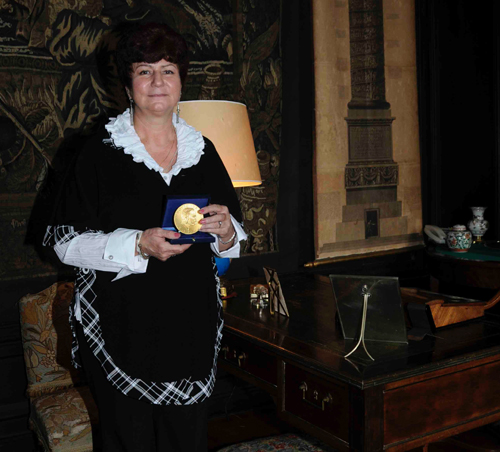|
|
|
|
|
|
|
INSTITUT DES DROITS DE L'HOMME DU BARREAU DE BORDEAUX |
INSTITUT DES DROITS DE L'HOMME DU
BARREAU DE BRUXELLES |
INSTITUT DES DROITS DE L'HOMME DU
BARREAU DE PARIS |
INSTITUT DES DROITS DE L'HOMME DES AVOCATS EUROPEENS |
UNIONE FORENSE PER LA TUTELA DEI DIRITTI DELL'UOMO |
Depuis/Since/Desde/Dal 1984
The
Ludovic-Trarieux International Human Rights
Prize 2010
Prix
International des droits de l'homme Ludovic-Trarieux 2010
Premio
Internacional de Derechos Humanos Ludovic Trarieux 2010
Internationalen Ludovic-Trarieux-Menschenrechtspreis 2010
Prêmio
Internacional de Direitos Humanos Ludovic Trarieux 2010
Premio
Internazionale per i Diritti Umani Ludovic Trarieux 2010
Ludovic
Trarieux Internationale Mensenrechtenprijs 2010
“L’hommage
des avocats à un avocat ”
“The award given by lawyers to a lawyer”
“El
homenaje de abogados a un abogado ”
“L'omaggio degli avvocati ad un avvocato”
presented on 8th October 2010 to
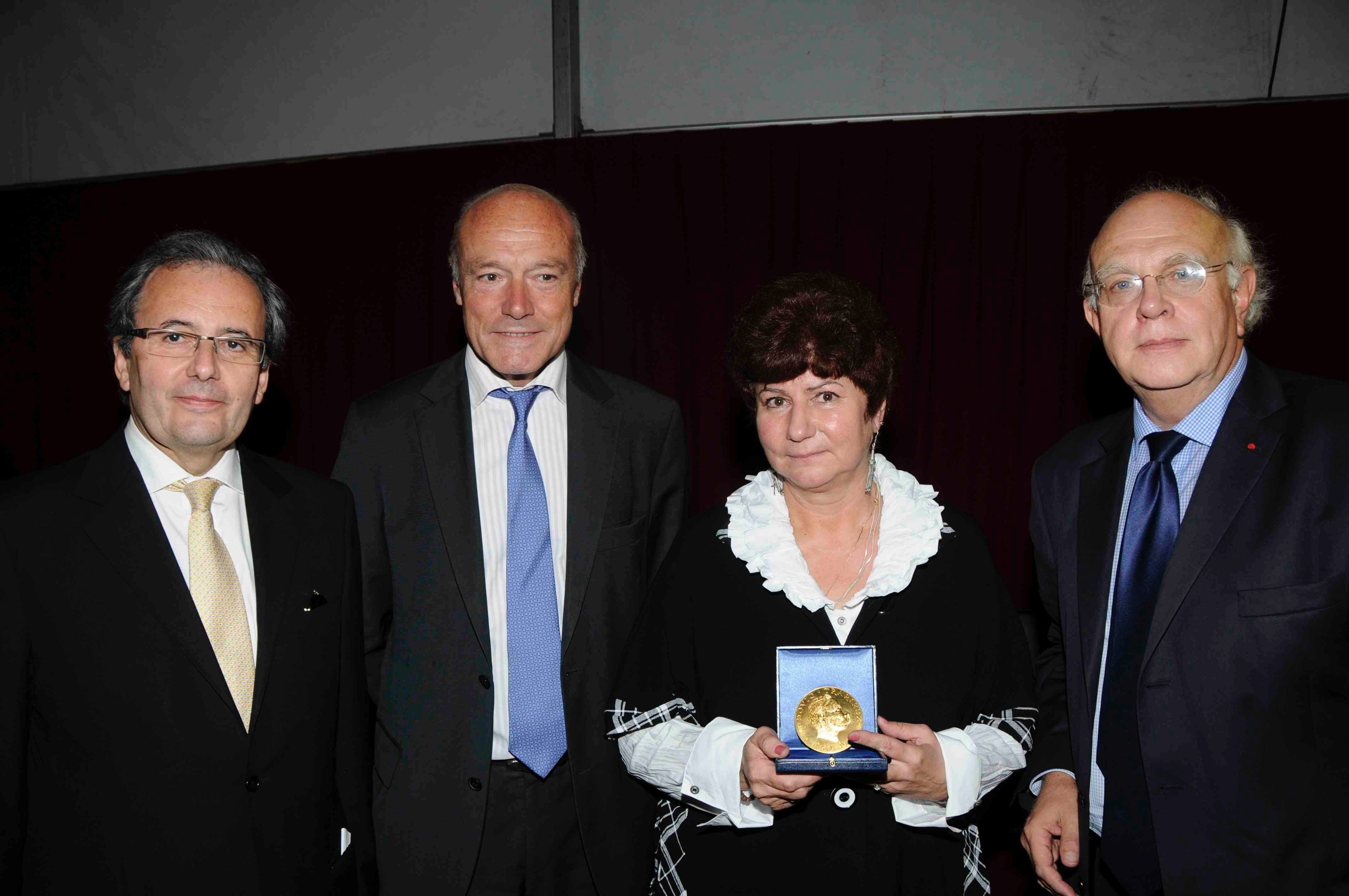
Karinna MOSKALENKO, wuth ( from left to right) Michel DUFRANC, President of the Bordeaux bar Association, mayor of La Brède, Alain ROUSSET,
President of Regional Council of Aquitaine and Bâtonnier Bertrand FAVREAU, founder of the Ludovic Trarieux Prize and President of the jury.
Download the Ceremony account (in French only). in pdf![]()
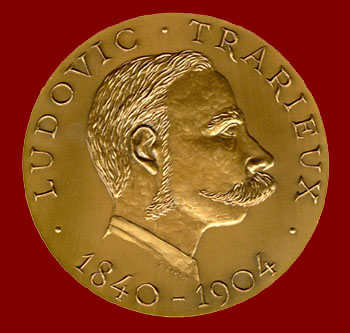 Karinna MOSKALENKO (RUSSIE) **
Karinna MOSKALENKO (RUSSIE) **
Prix
International des droits de l'homme Ludovic-Trarieux 2010
8 octobre 2010
A Tribute of European Bars to Karinna MOSKALENKO
8 October 2010 : Karinna Moskalenko in the Library of Montesquieu at Chateau de La Brède after receiving the International Human Rights Prize Ludovic-Trarieux 2010 “The award given by lawyers to a lawyer”.
Karinna Moskalenko is recognized internationally as
one of Russia's most effective and courageous human rights lawyers. She
currently represents Garry Kasparov and the families of Alexander Litvinenko
and Anna Politkovskaya. She founded the International Protection Center in 1995
to protect the human rights of defendants in Russia. Since then, the Center has
filed hundreds of cases before the ECHR and won important legal victories on
behalf of Russian citizens whose rights have been found to have been violated
by the Russian State. In apparent retaliation, Russian government tax
authorities accused the Center of failing to report grants and other
international contributions as ordinary income; as a result, the Center is
threatened with bankruptcy and closure.
Karinna Moskalenko has successfully tried numerous
human rights cases in Russia and abroad.
Her caseload before the European Court for Human Rights includes a
wide variety of Russian human rights issues, ranging from torture and
disappearances in Chechnya to victims of the Nordost Theatre siege in Moscow to
the arrest and imprisonment of Mikhail Khodorkovsky, the embattled former head
of Russia's YUKOS Oil Co., who is now serving an eight year prison sentence in
Siberia for what Moskalenko argues are purely political reasons.To date, the European Court of Human Rights has issued
137 judgments on Chechen cases holding Russia responsible for violating the
right to life, the ban on torture, and its other fundamental obligations under
the European Convention on Human Rights. The existing judgments pertain to the
abuses perpetrated by federal servicemen in the early years of the second
Chechen war. The Russian Government pays out monetary compensations to the
victims, as required by the Court, but fails to hold the actual perpetrators
accountable even in those cases where their identity is known, and does not
take any measures to prevent similar abuses from re-occurring. As a consequence
today, law enforcement and security agencies under President Ramzan Kadyrov's
de facto control receive the message that they will not be held accountable for
human rights violations they commit. New complaints from Chechnya are lodged
with the European Court, increasing.
In addition to her work with the International
Protection Center in Moscow, Karinna Moskalenko is a Commissioner of the
International Commission of Jurists. She has been a member of the Moscow Bar
Association since 1993. She also is a member of the Expert Council for the
Plenipotentiary on Human Rights for the Russian Federation and the Moscow
Helsinki Group.
**Award not yet accepted.
According to the
regulations of the award, the Prize is regarded as definitively awarded only if
the member elected or a member of his family accepts it and comes to receive it
at the time of a ceremony from handing-over which is held this year in October.
Created
in 1984, the "International Human Rights Prize Ludovic -Trarieux” is
awarded to " a lawyer, regardless of nationality or Bar, who thoroughout
his career has illustrated, by his activity or his suffering, the defence of
human rights, the promotion of defence rights, the supremacy of law, and the
struggle against racism and intolerance in any form ".
It is the
oldest and most prestigious award given to a lawyer in the world, commemorating
the memory of the French lawyer, Ludovic Trarieux (1840-1904), who in the midst
of the Dreyfus Affair, in France, in 1898, founded the " League for the
Defence of Human Rights and the Citizen ", because, he said: " It was
not only the single cause of a man which was to be defended, but behind this
cause, law, justice, humanity ".
The
first Prize was awarded on March 29th, 1985 to Nelson Mandela then in jail. It
was officially presented to his daughter, Zenani Mandela Dlamini, on April 27th
1985, in front of forty presidents of Bars and Law Societies from Europe and
Africa. It was the first award given to Mandela in France and the first around
the world given by lawyers. On February 11th 1990, Nelson Mandela was released.
Since then, it was decided that the Prize would be awarded again.
Since
2003, the Prize is awarded every year in partnership by the Human Rights
Institute of The Bar of Bordeaux, the Human Rights Institute of the Bar of
Paris, the Human Rights Institute of The Bar of Brussels, l'Unione forense per
la tutela dei diritti dell'uomo (Roma) and the European Bar Human Rights
Institute (IDHAE) whose members are the biggest european law societies fighting
for human rights such as the Union Internationale des Avocats (UIA),
Rechtsanwaltskamme Berlin, Ordre français des Avocats du barreau de Bruxelles,
barreau de Luxembourg or Polish National Council of the Bar (Warsaw). It is presented every year in a city
that is home to one of the member Institutes.
1985:
Nelson MANDELA (South Africa)
1992:
Augusto ZÚÑIGA PAZ (Peru) †
1994:
Jadranka CIGELJ (Bosnia-Herzegovina)
1996
Nejib HOSNI (Tunisia) and Dalila MEZIANE (Algeria).
1998
ZHOU Guoqiang (China)
2000
Esber YAGMURDERELI (Turkey)
2002
Mehrangiz KAR (Iran)
2003
Digna OCHOA and Bárbara ZAMORA (Mexico)
2004: Akhtam NAISSE (Syria)
2005: Henri BURIN DES ROZIERS
(Brazil)
2006: Parvez IMROZ (India)
2007 :
René GÓMEZ MANZANO (Cuba)
2008 : U AYE MYINT (Burma)
2009 : Beatrice MTETWA (Zimbabwe)
